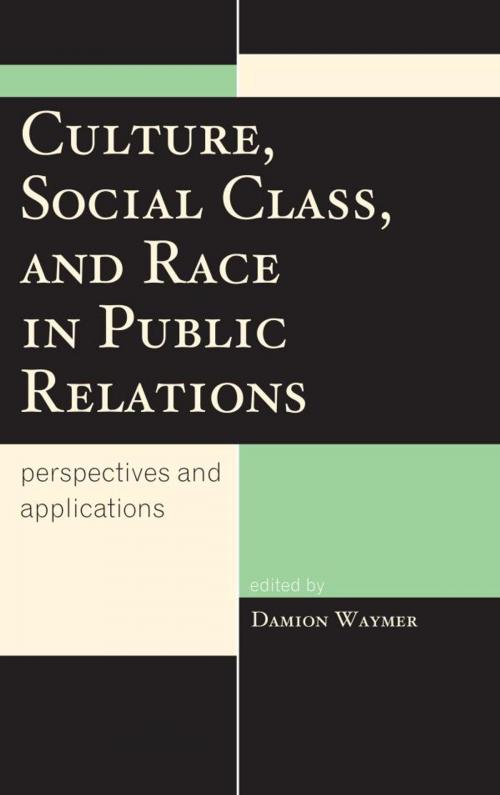Culture, Social Class, and Race in Public Relations
Perspectives and Applications
Nonfiction, Reference & Language, Language Arts, Communication, Social & Cultural Studies, Social Science, Discrimination & Race Relations| Author: | ISBN: | 9780739173411 | |
| Publisher: | Lexington Books | Publication: | September 27, 2012 |
| Imprint: | Lexington Books | Language: | English |
| Author: | |
| ISBN: | 9780739173411 |
| Publisher: | Lexington Books |
| Publication: | September 27, 2012 |
| Imprint: | Lexington Books |
| Language: | English |
Culture, Race, and Class-Based Perspectives in Public Relations, edited by Damion Waymer, covers timely and understudied topics in the field of public relations (PR). Via research, case analysis, and theoretical discussion, the contributors to this volume explore the ways that scholars can address issues of voice (or the lack thereof) that marginalized publics have encountered in the past or are currently encountering in regard to matters of culture, race, and class. A central question this book asks is what role can and does a greater understanding of culture, race, and class play in helping scholars, teachers, students, and practitioners to aid in society becoming a better place to live and work? Culture as well as other divisive social constructs such as race and class must be unpacked, problematized, and considered carefully before the fully functioning vision of society can be deemed possible. Some topics included are the Black Panther Party and Native American Activist rhetorical PR, risk equity, critical race theory, and pedagogical approaches to teaching culture, race, and class. This edited volume serves an important early step by scholars—via the context of public relations—in this process of advocating social justice as well as organizations' role in helping society achieve these ends.
Culture, Race, and Class-Based Perspectives in Public Relations, edited by Damion Waymer, covers timely and understudied topics in the field of public relations (PR). Via research, case analysis, and theoretical discussion, the contributors to this volume explore the ways that scholars can address issues of voice (or the lack thereof) that marginalized publics have encountered in the past or are currently encountering in regard to matters of culture, race, and class. A central question this book asks is what role can and does a greater understanding of culture, race, and class play in helping scholars, teachers, students, and practitioners to aid in society becoming a better place to live and work? Culture as well as other divisive social constructs such as race and class must be unpacked, problematized, and considered carefully before the fully functioning vision of society can be deemed possible. Some topics included are the Black Panther Party and Native American Activist rhetorical PR, risk equity, critical race theory, and pedagogical approaches to teaching culture, race, and class. This edited volume serves an important early step by scholars—via the context of public relations—in this process of advocating social justice as well as organizations' role in helping society achieve these ends.















